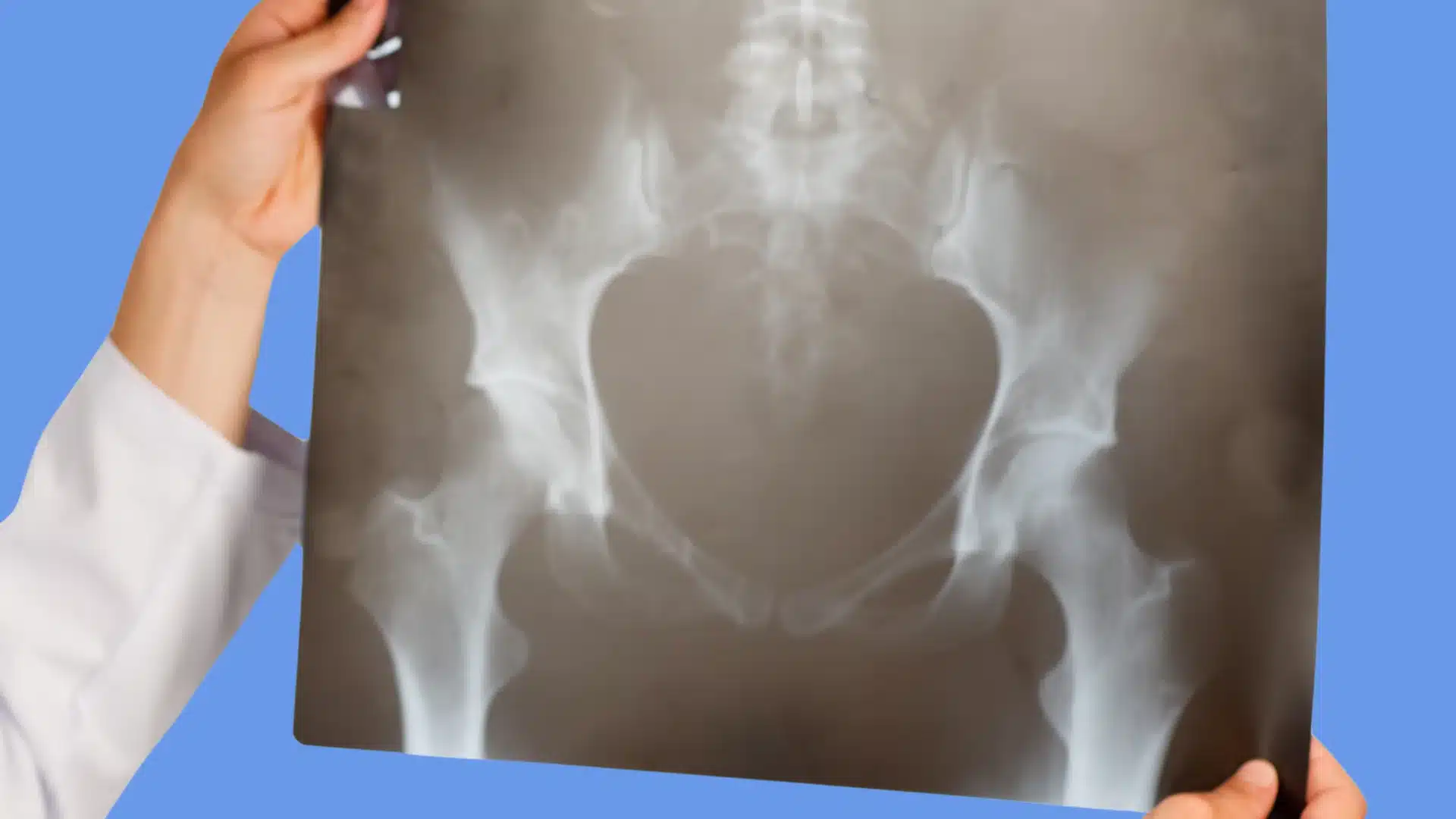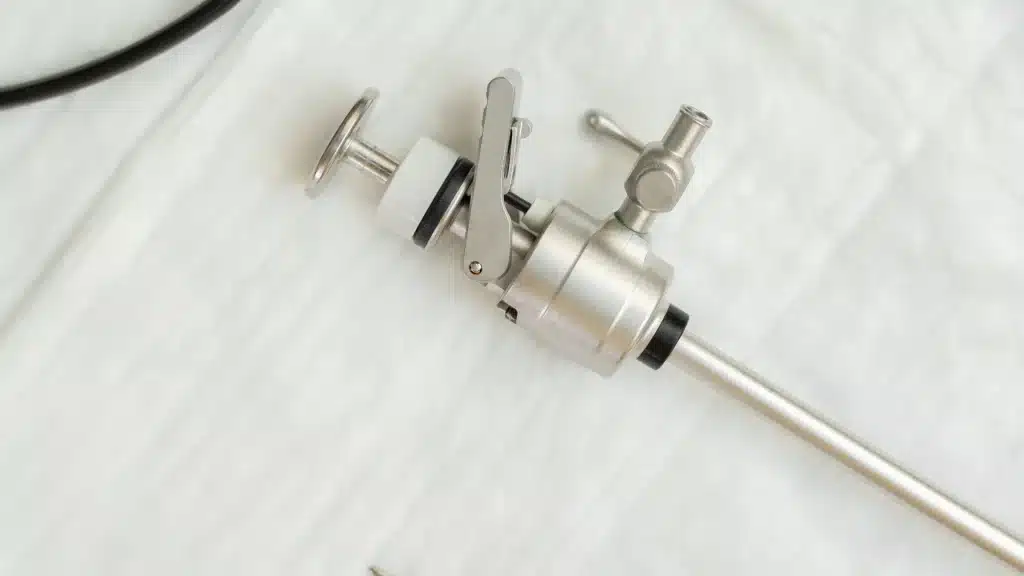Hip Joint Effusion: What Patients Need to Know

Overview
Hip joint effusion simply refers to an abnormal buildup of fluid within the hip joint. This condition often leads to swelling, discomfort, and restricted movement. While the presence of fluid in the joint is normal to some extent, an excessive amount indicates an underlying issue. This commonly happens due to various reasons that we will discuss below.
What is Hip Joint Effusion?
The hip joint is a ball-and-socket joint, one of the largest and most stable joints in the body. It is where the head of the femur (thigh bone) fits snugly into the acetabulum, a deep, cup-shaped socket in the pelvis.
The fibrous capsule of our hip joint is lined with a synovial membrane. It creates synovial fluid, a liquid that lubricates and nourishes the cartilage that is covering the bones.
But when an imbalance occurs in the joints, then the production or drainage of synovial fluid, or if the joint’s structure is compromised, effusion will result, causing symptoms such as pain and swelling.
Causes
Several factors contribute to the development of hip joint effusion. These causes often determine the severity and treatment approach:
Injury or Trauma
Injuries are a leading cause of hip joint effusion. A fall, car accident, or sports-related trauma will damage the bones, cartilage, or soft tissues surrounding the joint. For example:
- Bone Fractures: Breaks in the femur or pelvis will lead to inflammation and fluid buildup.
- Ligament Tears: Damage to the ligaments stabilizing the hip will cause bleeding or synovial fluid overproduction.
- Dislocations: Due to falls, dislocation happens and leads to pain.
Even minor injuries, if left untreated, may escalate into significant issues, including chronic effusion or joint instability.
Arthritis
Arthritis is one of the leading causes of joint effusion. Different types of arthritis affect the hip joint in various ways:
- Osteoarthritis: Known as “wear-and-tear” arthritis, it gradually breaks down the cartilage, cushioning the bones and leading to bone-on-bone contact. This friction causes inflammation and fluid buildup.
- Rheumatoid Arthritis: This autoimmune disease triggers an inflammatory response in the joint, damaging the synovial lining and leading to chronic effusion.
- Psoriatic Arthritis: Associated with psoriasis, this condition inflames the synovial membrane, causing pain, stiffness, and effusion.
- Juvenile Idiopathic Arthritis: Though less common, this form of arthritis affects children, leading to swelling and joint fluid accumulation in the hips.
- Septic Arthritis: It is an infection caused by bacterial, viral, or fungal infections within the joint. Septic arthritis often presents with severe pain, redness, warmth, and fever. Immediate medical intervention is critical to prevent long-term damage or systemic infection.
Overuse and Repetitive Motion
Repetitive stress on the hip joint, often seen in athletes or individuals with physically demanding jobs, will lead to irritation and inflammation. Activities such as long-distance running or heavy lifting strain the joint’s structures, particularly the tendons and cartilage. Over time, this stress will cause small tears and fluid accumulation as the body attempts to repair the damage.
Underlying Diseases
Certain systemic diseases and conditions contribute to effusion, including:
- Gout: Excess uric acid in the blood crystallizes in the joints, causing severe pain, swelling, and effusion.
- Lupus: This autoimmune condition inflames the joints, including the hip, leading to fluid buildup.
- Bursitis: Inflammation of the bursae (fluid-filled sacs cushioning the joints) mimics or accompanies hip joint effusion, causing localized pain and swelling.
- Avascular Necrosis: When the blood supply to the femoral head is reduced, the bone tissue dies, leading to inflammation and effusion.
Understanding the underlying cause of effusion is essential for determining the appropriate treatment and preventing complications.
Diagnosis
We use several methods to determine whether a patient has hip joint effusion. Each step helps identify the cause and guides treatment. Here is what the process involves:
Medical History and Physical Exam
The diagnostic process begins with a thorough review of the patient’s medical history. It includes questions about symptoms, recent injuries, and any known health conditions such as arthritis or gout.
A physical examination follows, during which we check for swelling, warmth, or tenderness around the hip joint. Then the range of motion will be assessed by gently moving the leg to identify any limitations or pain during movement.
Imaging Tests
Imaging tests provide a clear view of the internal structures of the hip. These include:
- X-rays: X-rays reveal bone abnormalities, including fractures or signs of arthritis.
- Ultrasound: Ultrasound imaging detects soft tissue abnormalities and fluid buildup around the joint.
- MRI (Magnetic Resonance Imaging): MRI scans produce detailed images of soft tissues, such as cartilage and ligaments, and will confirm the presence of effusion.
- Joint Aspiration (Arthrocentesis): If an infection or specific condition like gout is suspected, we may recommend joint aspiration.
These diagnostic steps accurately determine the cause of hip joint effusion and establish an effective treatment plan.

Treatment
The plan of treatment totally depends upon the patient’s health and condition. But common treatment options are:
Rest and Ice
For minor cases, resting the joint and applying ice packs reduces inflammation and relieves symptoms. It is important to avoid activities that place stress on the hip during recovery.
Medications
Medications are essential in managing pain and inflammation:
- Nonsteroidal Anti-Inflammatory Drugs (NSAIDs): Medications such as ibuprofen or naproxen reduce swelling and discomfort.
- Corticosteroids: It is injected directly into the joint to provide rapid relief from puffiness.
- Antibiotics: Antibiotics are mandatory for treatment.
Physical Therapy
Physical therapy is a tried and tested method for a long time to gain strength, flexibility, and range of motion. In this, through exercises, the muscles are targeted to support the hip joint, preventing stiffness and promoting recovery.
Joint Drainage
Joint drainage is done to remove excess fluid and reduce joint pressure which is an essential step in the treatment journey.
Surgery
When structural issues, such as torn cartilage or ligaments, are the cause, surgical intervention may be required. Arthroscopic surgery, a minimally invasive option, repairs damage and addresses chronic effusion.
Prevention
Although not all cases can be prevented, here are some tried and tested tips:
- Maintain a Healthy Weight: Excess body weight places additional pressure on the joints.
- Warm-Up Before Exercise: Proper warm-ups and stretches prepare the joints for physical activity and reduce the risk of injury.
- Avoid Overuse: Limiting repetitive motions and allowing adequate rest prevents strain on the hip.
- Manage Underlying Conditions: Proper treatment of arthritis, gout, or other chronic conditions prevents effusion.
When to Seek Medical Attention
While mild hip joint effusion may improve with rest and self-care measures, persistent or severe effusion should be evaluated by a healthcare provider. Early diagnosis and treatment are essential to identify the underlying cause, prevent further complications, and restore joint function and mobility.
If you experience any of the following symptoms, seek medical attention promptly:
- Symptoms persist for more than a few days
- Pain worsens or interferes with daily activities
- Fever, chills, or other signs of infection develop
- The joint becomes extremely swollen or immobile
Takeaways
The prognosis for hip joint effusion depends on its cause. With appropriate treatment, most individuals recover fully. Hip joint effusion is a treatable condition that requires timely treatment.
FAQs About Hip Joint Effusion
Will hip joint effusion resolve without treatment?
In some cases, hip joint effusion can resolve with rest and care. However, persistent or severe cases may require medical intervention. Call HipXpert for a free consultation.
How long does recovery take?
The recovery time varies based on the underlying cause and treatment approach. Minor injuries may heal within weeks, while infections or chronic conditions might take longer to resolve.
Is hip joint effusion more common in adults?
Yes, hip joint effusion is more common in adults, particularly those with arthritis or a history of joint injuries.
